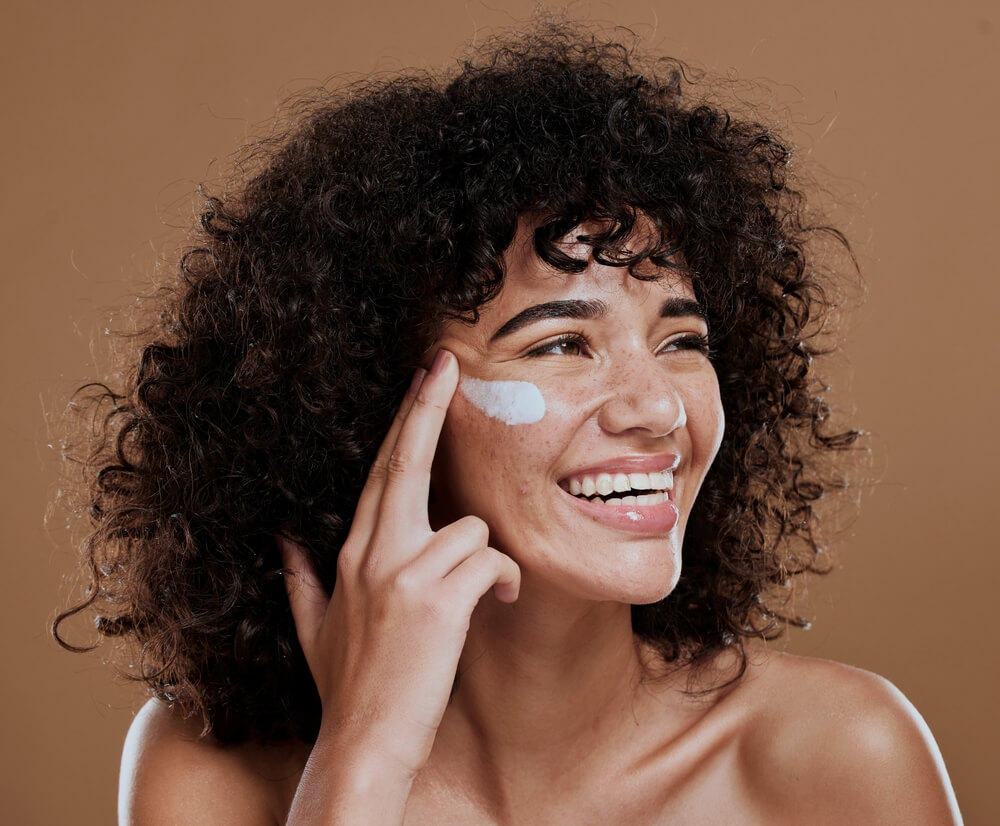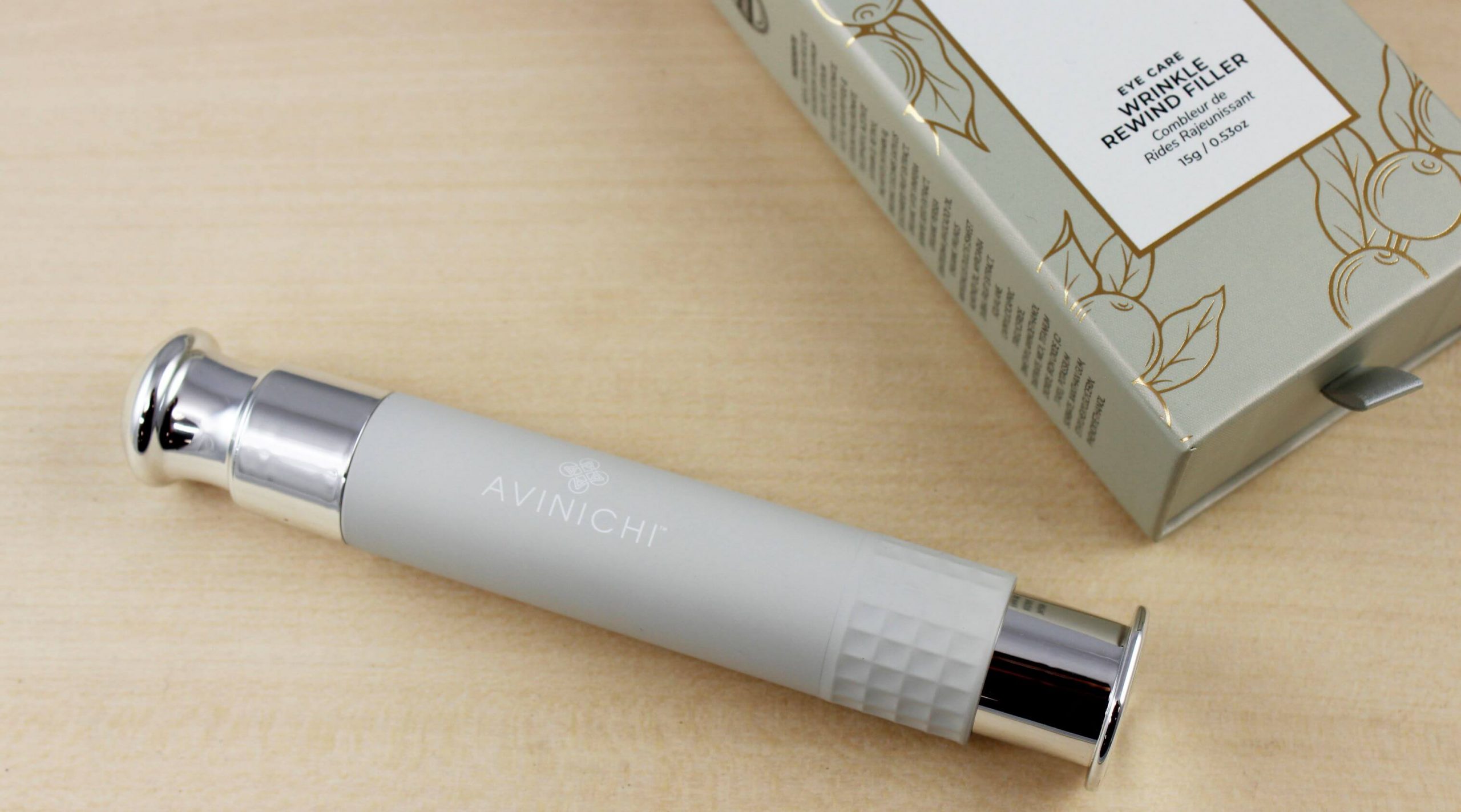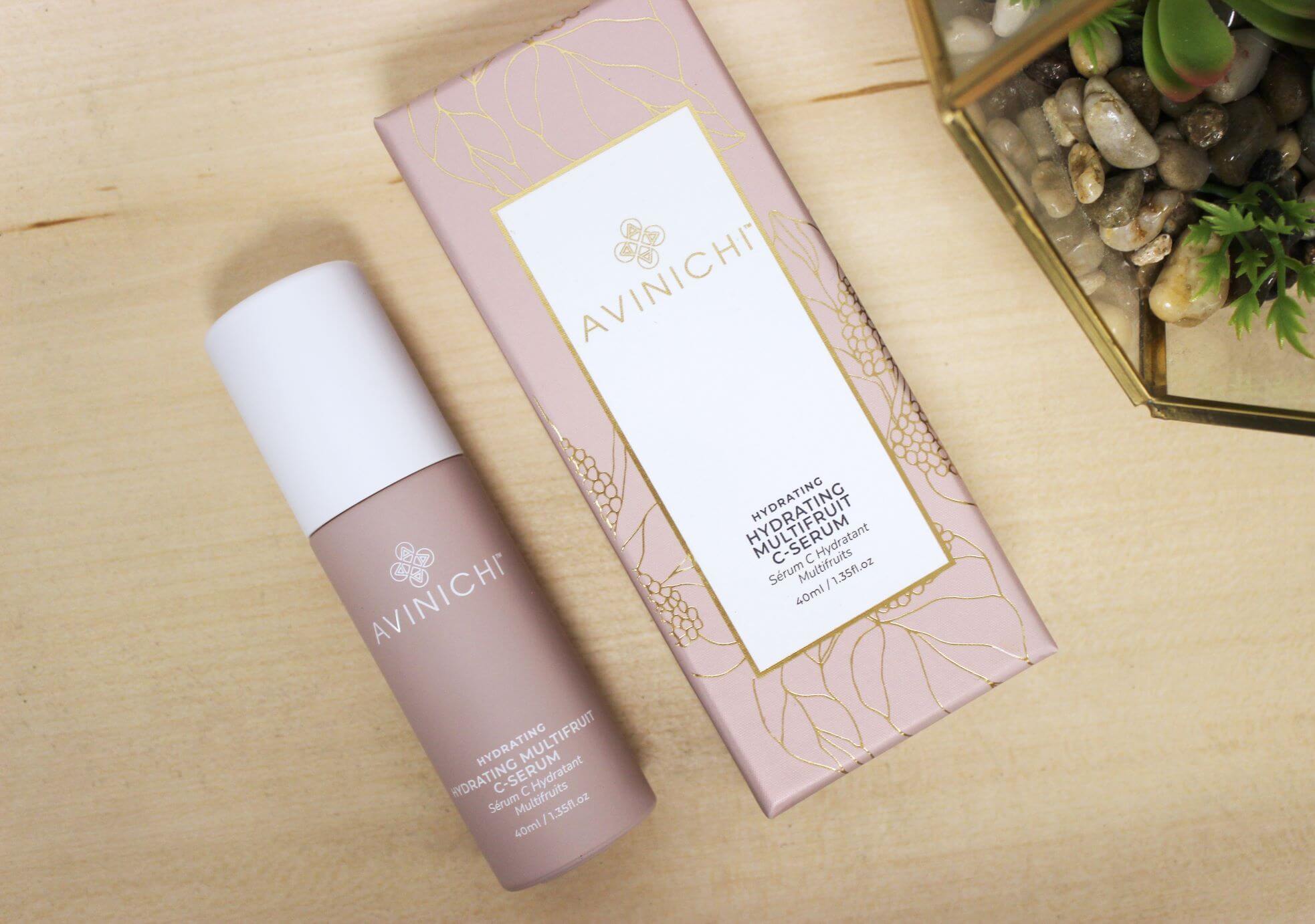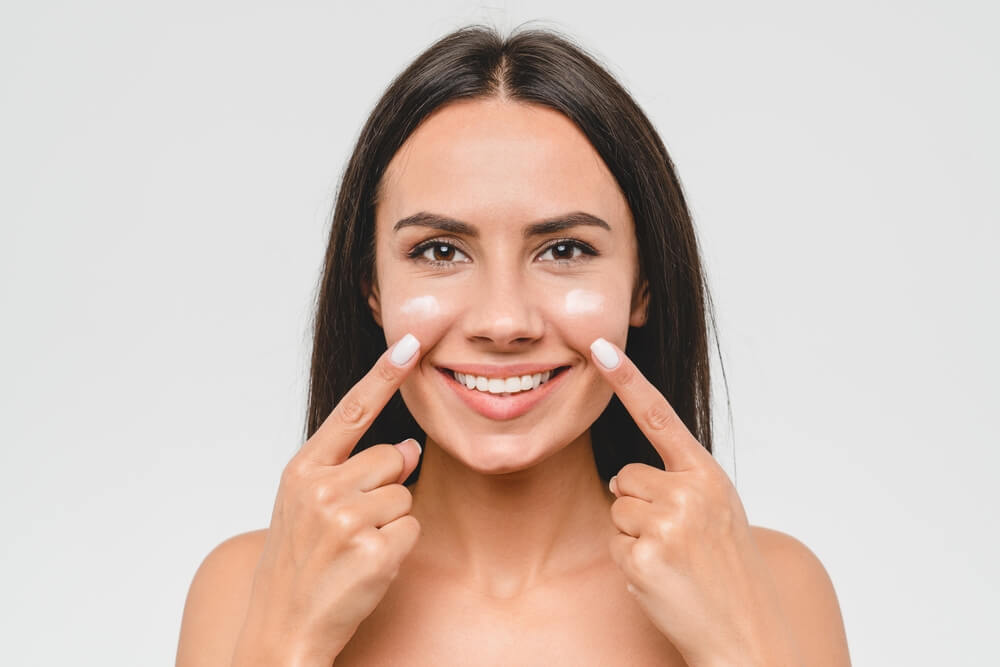Published: August 15, 2023

Although most people may be aware of the fact that they need to keep their skin protected from the sun at all times, this often doesn’t play out in reality. Whether this is due to how sunscreen makes your skin feel greasy or simply because you keep forgetting to ensure that your skin is consistently protected, research shows that the majority of adults aren’t doing enough to keep their skin shielded from UV rays.
If you’re guilty of being neglectful with your SPF, it’s time to make a change. Read on as Avinichi talks you through exactly why SPF is such an important part of your skincare routine. We’ll also explain how to choose the best sunscreen for your skin, along with how to apply it so that it’s able to perform as effectively as possible.
Why is it Important to Keep Your Skin Protected From the Sun?
Before we dive into the details of choosing SPF products, let’s first take a look at some of the most important reasons to ensure that your skin is adequately protected from the sun:
Lowers Your Risk of Skin Cancer
Experts estimate that around 9,500 Americans are diagnosed with skin cancer each day, with this disease affecting roughly one in five of the population. This makes skin cancer the most common form of cancer in the USA.
With skin cancer having the potential to be fatal, it goes without saying that this is a disease worth trying to avoid as much as possible, and SPF can help you to do just that. Numerous studies back this up, confirming that consistent and long-term use of sunscreen can significantly reduce a person’s risk of developing squamous cell and melanoma skin cancers. In fact, one Australian study found that people who wear sunscreen daily are four times less likely to develop invasive melanomas compared to those who only sometimes wear sunscreen.
This shows how important it is to get into a good routine with your SPF. Sporadic use is better than nothing, but consistency is what you need if you want to keep skin cancer at bay.
Prevents the Appearance of Premature Skin Aging

Did you know that the sun is responsible for up to 80% of the visible signs of skin aging? In fact, some experts place this figure at closer to 90%. This means that most of the fine lines and wrinkles that you’ll develop in life could potentially have been avoided with the diligent use of sunscreen.
Wondering how exactly the sun is responsible for aging your skin?
It all comes down to how deeply UV rays penetrate the skin. They don’t just hit your skin’s outer layer – they dive deep down and alter your skin cells at DNA level. They cause oxidative stress in your cells, which prevents them from functioning in the way that they should. UV rays also damage the collagen and elastin fibers that give the skin its smoothness and bounce. The more these fibers weaken, the faster the skin starts to wrinkle and sag.
Studies confirm that regularly wearing sunscreen helps to keep the appearance of wrinkles at bay. So, if you’d like to keep your skin looking firm and youthful for as long as possible, SPF is a must.
Is there any point in bothering with sunscreen if your skin has already started to wrinkle?
For sure! Chances are that you’d like to prevent the appearance of your wrinkles from deepening and becoming even more noticeable, and SPF will help with that. In fact, if you’re using skincare products designed to reduce the visibility of aging, such as Avinichi’s Wrinkle Rewind Filler, your results will be so much more impressive if your skin isn’t still continuing to be harmed by the sun.
Protects Your Complexion From Dark Spots and Discoloration

While wrinkles may be bad enough, the sun is also a primary cause of hyperpigmentation. When UV rays hit unprotected skin, the skin responds by increasing melanin production. This is the pigment that gives your skin its color, which is why spending time in the sun causes your skin to tan.
However, while that initial darkening of your skin may look quite even, too much sun exposure causes the skin to over-produce melanin. Once this happens, it isn’t able to evenly distribute those pigmented cells throughout your skin. As a result, those cells end up clustering together under certain parts of the skin. This gives those areas of the skin a darker and discolored appearance.
If you already happen to be dealing with post-inflammatory hyperpigmentation for another reason, such as an acne breakout, then sun exposure will only make this worse.
So, in order to ward off the appearance of skin discoloration while also preventing any existing areas of hyperpigmentation from visibly worsening, SPF is essential. Even if you’re using powerful products designed to lighten the look of dark spots, such as the Avinichi Hydrating Multifruit C-Serum, they won’t be as effective as they could be unless you’re also wearing SPF.
Reduces Your Risk of Sunburn
Not only does each sunburn you experience seriously increase your risk of developing an invasive melanoma, but sunburns can be painful! The swelling, redness, itching, peeling, and sometimes even hives can be so uncomfortable to deal with.
Once your skin finally starts to peel after a painful sunburn, this is a sign that your body is trying to get rid of its damaged cells. In some ways, this is good, even though the damage that has occurred in your deeper skin cells can’t be eliminated in this way. However, the new skin that lies underneath that burnt layer will be very thin and fragile. After all, it wasn’t ready to be exposed to the world just yet – your sunburn sped that process up. As a result, this skin is then even more susceptible to sun damage, increasing your chances of developing all of the issues that we’ve discussed so far.
Since sunscreens were primarily designed to prevent the skin from burning, ensuring that your skin is always covered with SPF should be enough to keep those sunburns away. If you do happen to experience a sunburn, make sure that you keep your skin hydrated, moisturized, and even more protected while it heals.
Reduces the Feeling of Inflammation in the Skin
Once the sun causes your skin to start to burn, it’s pretty evident that the skin is inflamed. It looks red and swollen and feels sore – classic signs of inflammation.
However, even if your skin hasn’t started to burn, just a small amount of UV exposure can cause inflammation in the skin. UV rays activate the skin’s inflammatory receptors, placing the skin in an inflammatory state.
If you already suffer from an inflammatory skin condition, then this is bad news. Whether it be acne, psoriasis, rosacea, or anything else, even a short spell in the sun could significantly exacerbate your skin concerns. Ensuring that your skin is protected with SPF will go a long way in preventing the feeling of inflammation while keeping your complexion calm and soothed.
A Closer Look at SPF

We’ve mentioned SPF several times now, but what do these three letters actually stand for?
SPF refers to sun protection factor, which describes how much UVB protection a sunscreen is able to provide. However, it’s not only the sun’s UVB rays that you need to worry about. Sure, those are the rays responsible for sunburns and skin cancers, but UVA rays are damaging too – they’re the ones that stimulate premature skin aging.
How do you know if a sunscreen will protect you from UVA rays too?
If the label states that the product is a broad-spectrum sunscreen, then this means that it provides protection from both UVA and UVB rays. Some labels will also have a star rating, which indicates just how much UVA protection the sunscreen offers.
So, back to SPF. How much do you actually need?
Experts recommend a minimum SPF of 30. This blocks around 97% of the sun’s UVB rays. While you could spend more on a higher SPF rating, these don’t provide much more protection. SPF 50 blocks about 98% of UVB rays while SPF 100 blocks 99%. Unless you have severely sensitive skin, then SPF 30 is perfectly sufficient, so long as you pick a high-quality formula and use it regularly.
Applying (and Reapplying) Your Sunscreen
If you apply an SPF 30 sunscreen, then it goes without saying that you expect it to provide a certain level of protection. However, research shows that most people aren’t receiving an adequate amount of protection from their sunscreens, simply because they aren’t applying enough of it.
Ideally, when applying SPF to your face, you should aim to use a nickel-sized dollop of sunscreen. Make sure that you cover every single bit of exposed skin. The temples, behind the ears, the hairline, and the neck are often forgotten about, which is why these areas are highly susceptible to premature aging and cancerous cells.
Of course, you’ll need to protect the skin on your body too. You’ll need about one ounce of sunscreen in order to do so, which is roughly what the average shot glass holds.
The tricky thing about SPF is that it doesn’t last all day. In fact, one application will only keep your skin protected for about two hours, which is why regularly reapplying your sunscreen is so important. If you’re swimming or if you’ve been heavily sweating, then you’ll need to reapply your sunscreen at even shorter intervals.
Wondering if you can skip your sunscreen for a day because it’s cloudy outside?
Unfortunately, the answer is no. Not only can the sun’s UV rays easily penetrate through clouds, but they can even damage your skin from behind glass. Therefore, even if your day consists of nothing more than driving to work and sitting at a desk, you’ll still need to make sure that your skin is protected from UV damage.
Summary
As you can see, when it comes to maintaining healthy-looking skin, SPF is non-negotiable. Even if you’ve been less than diligent about wearing sunscreen so far in life, it’s never too late to turn things around. Find a sunscreen that you love, integrate it into your daily routine, and you’ll be able to bask in the sun’s warmth without having to worry about all of the damage that those UV rays may be causing.
Click here to browse Avinichi’s bestselling skincare products.
